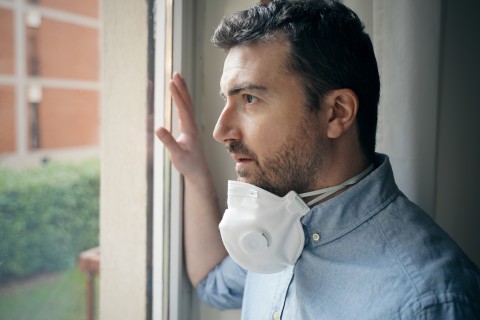

Connected Home Setup
Take the Guesswork out of Your Connected Home Setup with Pace Heating & Plumbing. We’re working to make it as easy as possible to keep your home comfortable, using the latest Smart Home products, systems and services.
It’s not just the luxury of having warm feet that makes underfloor heating a good choice
It’s not just the luxury of having warm feet that makes underfloor heating a good choice
Imagine never having to experience that winter morning dash to avoid walking on an icy floor. Well, fortunately, underfloor heating could make that a reality, and it’s not just the luxury of having warm feet that makes underfloor heating a good choice. It’s also an effective way to heat our homes for less.
There are two ways that underfloor heating works; a wet system and a dry system.
This depends on how good your insulation is. A poorly insulated home is never a good idea but if your home loses a lot of heat then you’re going to severely reduce the effectiveness of any heating system you have installed – underfloor or not.
If the floor isn’t insulated well enough then you’re going to find the heating system will also heat the earth below as well as the room above, which just wastes energy which means higher bills for you.
Regardless of whether you go for a wet or dry system, you need to make sure the areas under the heating elements are well insulated to ensure you get the full benefits.
Running costs of course vary on room size, how often you have the heating on, which type of underfloor heating you have and how well your room is insulated.
An electric, or a dry system, will cost less to install but cost more to run. If you’re going to go for the water based option then you can expect to pay around a third more than you would pay to have a radiator installed. Of course, if you add this system to a new build then you’re likely to see the installation costs dramatically decrease.
Radiant heating is compatible with almost all floor finishes. Pay attention to the thermal conductivity of the floor type when choosing the best flooring to go with your floor heating. Thermal conductivity means how well the flooring material transfers heat from the heater to the surface of the floor. The better, the more efficient heating system you will have.Underfloor heating can be used with a variety of different flooring however, the choice of floor covering will have an impact on how well the heating performs.
Tile and stone are generally the best type of covering. This is because they absorb the heat as opposed to insulating it and let it out at a constant and effective pace.
Wood will reduce efficiency but if you opt for thinner timber then you won’t notice too much of a difference. Solid timer is more tricky as it needs to be left to set for around a month before it can be used.
Carpet can be used with underfloor heating but its essential to make sure that you choose the right type of carpet. You need to make sure that the chosen underlay has a low thermal resistance and the carpet has a hessian back to ensure efficient running of the underfloor heating system.
Underfloor heating is a great way to heat your room evenly and avoid any cold spots that are often associated with radiators. And talking about radiators, having underfloor heating means that you free up a ton of space on your walls because you won’t need them anymore. So from a design perspective it’s most certainly a winning idea.
You may not get instant results
One thing to keep in mind if you decide to opt for underfloor heating is that unlike gas central heating, you won’t feel the effects after just a couple of minutes. The underfloor heating system does take a little while to warm up so it may not suit your needs if you’re prone to feeling chilly or you can’t predict the weather.
That said it is does have many good points that outweigh the one or two negative points that come as standard. For example, it can often be controlled on a room by room basis meaning you don’t waste energy heating rooms that you’re not using.

Home heating accounts for 61% of average energy consumption. underfloor heating can save up to 15% on heating bills
Home heating accounts for 61% of average energy consumption. underfloor heating can save up to 15% on heating bills
Considering underfloor heating for your home might raise many questions such as cost, installation time, what system to opt for, hydronic or electric and what type of flooring to lay over it and many more.
There are two types of underfloor heating systems; hydronic and electric floor heaters. Both methods are suitable for installation in new builds. The decision of which system to opt for is dependent on the available floor height. Hydronic (or wet) system consists of heating pipes that circulate warm water that emit radiant heat to the floor surface. The construction of the system, including the pipes, raises the floor level more than an electric system. Pace Heating & Plumbing installs and services only water underfloor heating.
If you are considering renovating and including underfloor heating in your project, our home heating advisor can help you to find the best solution for you and your family
How much does it cost?
In principle, wet systems cost more to install but are very cheap to run. Therefore, the installation cost is usually the most costly part. The cost of your underfloor heating will depend on the type of boiler and the size of the area you are looking to install it in.
Underfloor heating systems are very cost-efficient systems to run. They produce even radiant heat throughout the area and provide comfortable room temperature at a lower heat than radiators.
What should I do about installation?
A hydronic system conventionally comprises various components, including a boiler, manifold, mixing unit, actuators, pipework and a thermostat. As mentioned above, installation of a wet system usually takes place when building a new home, but it can also be carried out during a renovation
The most significant concern raised by potential customers is the inconvenience should the underfloor heating require maintenance
Home heating accounts for 61% of average energy consumption. underfloor heating can save up to 15% on heating bills
Like any busy household in winter, when the heating system malfunctions it throws the household into coldness and chaos. It also means that you spend hours on any given day trying to find an engineer who has the knowledge to fix the problem. If you are having issues with your underfloor heating products, then why not check out our range Common Underfloor Heating Problems below
Although generally highly reliable, there are many reasons your underfloor heating could be malfunctioning. These problems can include anything from incorrect setup to incompatible external components, such as flooring, or something as simple as trapped air in the pipes. This guide discusses how you can diagnose these issues, fix them and, most importantly, prevent them from occurring in the first place.
Is your underfloor heating not heating up? You have noticed that more than one zone or even the whole system has stopped heating up. Call Pace at 0207-183-2727 to schedule a service call
this is easy to check. The isolation valve should be in line with the pipes on the manifold. If it isn’t, then it is stuck in the closed position – this is easy to see, as it will be at 90 degrees to the pipe.
The actuator is the mechanism that causes a device to operate. The solution requires the removal of this actuator from the affected zone and a check to see that the pin valve is free. You can use a silicone spray to free the pin if it is stuck down.
there could be a problem with signals getting to the boiler, which will require the help of a Pace heating engineer. It could be that the boiler isn’t working at all. As with a central heating system with radiators, this is easy to check if your boiler is working. Call us at 0207-183-2727 to schedule a service call
You will become used to the sound of the pump firing on and off, as you would expect a boiler to switch on when the thermostat demands more heat. Therefore, it is easy to spot when this pump is running all the time and is a clear indication of a problem. You are likely getting heat, but you are also using a lot of electricity, so it is good to call us at Pace to resolve this problem quickly.
All these issues result from electrical problems that will require the assistance of a Pace heating engineer. Call us at 0207-183-2727 to schedule a service. You could try resetting the thermostat, clearing potential errors before making the calling.
Generally, issues with your heating system are often down to the pipes. If your underfloor heating is a wet system, which runs from a boiler, then it could be a blockage or trapped air. Fortunately, these problems can be resolved just as easily as they occurred. You may want to attempt some of these fixes yourself, though if you lack confidence a plumber or heating engineer will be able assist you.
If the system keeps losing pressure, it suggests there is a leak somewhere. When the pressure drops, top your system up following the manufacturer’s guidelines. If the pressure stays low, go back a step and check that the connecting pipes to the manifold are in place and not leaking.
The leak may be located on the pipe run. The Pace heating engineer will diagnose the system and find the location of the leak.
It’s vital for the continued health of your underfloor heating system that you set the controls up correctly. Although no major destruction can happen with a simple slip of the controls, continual running of the underfloor heating with the wrong set-up can cause issues.
You should check the following: –
You will likely spot if there is no heat or if there is too much heat. However, your heating system can give off other signs that there are problems that need looking at.
According to the UK Government study, Housing Fact File 2012, home heating accounts for 61% of average energy consumption. Underfloor heating can save up to 15% on heating bills as it operates at a lower temperature. Additionally, there is less heat loss through “transfer pipes” and less overheating of the room. The system provides even heat throughout the room and has the ability to be controlled per zone, i.e. heating on only when required (per zone) by a having programmable thermostat per zone.
If you have any questions about heating your home or are looking to upgrade your boiler, Call Pace Heating & Plumbing 0207-183-2727 today to schedule time with one of our Home Advisors. The advisor will assess your home and discuss your needs to find the right solution for you and your family.

This ultimate guide will help to answer any of your questions and provide the information needed to make smart and informed decisions about your home’s central heating equipment

Questions about your Central Heating we’ve got the answers to some of your most commonly asked question about furnace and home heating equipment

With different central heating types selecting the right appliances can be a difficult decision here are a few important things to consider….

The COVID-19 Pandemic has raised a number of questions. The following Q&A link addresses the safety of providing service in our homes…..

Central heating is not working?. Here are some simple tips to keep you warm and help you keep your heating cost down …..


Take the Guesswork out of Your Connected Home Setup with Pace Heating & Plumbing. We’re working to make it as easy as possible to keep your home comfortable, using the latest Smart Home products, systems and services.

We’re Pace Heating & Plumbing If you’re looking for boiler engineers in your area, then you’ve come to the right place. All our engineers are trusted & accredited Gas Safe registered professionals. We only higher the best. Get in touch today!